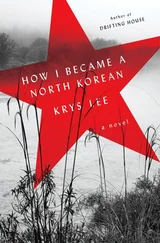ALL THAT HAD HAPPENED had helped to make time pass. Suddenly, in spite of my habitual distraction, I noticed that the consistency of the air was changing: it wasn’t as cold, the days were getting longer … Spring was coming. It was as if the year was receding into the past, compacted into a block of dead matter, foreign to me. It was absorbing all the little differences, the movements, tremors and thoughts, extracting them from the present, making way, I sensed, for something new and heady and slightly wild. Not that I let optimism get the better of me — my experience was too unilateral for that, and anyway it wouldn’t have been my style. It was more the sense of a cycle coming to a close, but since my life had begun, as it were, that autumn, shortly after our arrival in Rosario, I didn’t see the cycle from the outside, as a repetition, but from the inside, as a rectilinear movement. In short, I had the feeling that things were about to change.
And how could it have been otherwise, since the world around me was changing, and I was changing myself? I was no longer preoccupied by school, or Dad’s absence, or the teacher’s campaign against me, or the radio, or Arturito. It was as if everything had worn thin and become transparent … I clung to that transparence, but without anxiety or pain, as if I wasn’t clinging but moving freely through it, like a bird. I felt the pull of open spaces, like those I had known in Pringles, although I had no memory of Pringles; a total amnesia cut me off from my life before Rosario, before the invention of my memory. But the spaces of Pringles were not a memory. They were a desire, a kind of happiness that could exist anywhere: all I had to do was open my eyes, hold out my hand …
That space, that happiness had a color: rose-pink. The pink of the sky at sunset, a vast, transparent, faraway pink whose absurd apparition represented my life. I was vast, transparent and faraway, and my absurd life represented the sky. Living was painting: coloring myself with the pink of the inexplicably suspended light …
In our neighborhood, the houses were low, the streets broad, and the pageants of the sky were within arm’s reach. Mom started letting me go to school on my own — it was four blocks away. I dawdled, especially on the way home, as dusk unfolded. I was coming to know freedom and aimlessness. I was discovering the city … without actually going into it, of course … I kept to my far-flung corner and imagined the rest of the city from there, and especially from the riverbank, where I went every day to have a look around, because it wasn’t far and there was always a chance to get out of the house. Of course I never let a chance go by. I accompanied Mom on all her errands … I always had, because she didn’t dare leave me alone in the room, imagining all sorts of disasters, I guess. But now I had come up with a specially fun method of accompanying her. I had to turn every pleasure into a vice, a mania. There were no half measures with me. Mom had to resign herself to it, although it was a constant source of problems and worries. What I did was to “tail” her. I’d let her get ahead, a hundred meters or so, while I hid, and then I’d follow her, remaining hidden, going from tree to tree, doorway to doorway … I hid (it was sheer love of fiction on my part, because she soon wearied of the game and stopped turning around to look) behind anything that would afford me cover: a parked car, a lamp post, a pedestrian … When she turned a corner, I ran and hid behind it, spying on her, letting her get ahead again, waiting for a new opportunity to sneak up on her under cover … If I saw her go into a store, I’d wait in hiding, my eyes fixed on the door … When she went back home, it was an anticlimax. I’d wait for half an hour on the corner to see if she was going to come out again, and then, finally, I’d go in, usually to be greeted with a slap; my ruses had understandably frayed her nerves. I almost always lost her. I tried to be too clever, made it unnecessarily hard, to the point where the distance between us was neither short nor long, because it had simply evaporated. Then I would go home and hide in the hallway, not knowing if she had come back or not … and sometimes she had to cut short her shopping and come home, when it became obvious that I wasn’t following her … Then she would give me a slap and go out again, dragging me by the hand this time, squeezing it until the bones cracked … I was incorrigible. The game was my freedom. Oddly, while I was playing it, I never issued any of my famous mental instructions, although the game would have been perfect for them … I guess my tailing was already, in itself, a series of instructions, and maps, for making a city … Mom stayed within a fairly small radius around our home: always the same streets, the same routes, the grocery store, the butcher’s, the fishmonger’s, the fruit and vegetable store … There was no danger of me getting lost. I always lost track of her sooner or later, but I didn’t get lost myself. Although she never stopped fearing that I would. And neither of us would have been surprised if I had. I can’t understand why I never did.
What I couldn’t work out was how I managed to lose her, how she eluded my tenacious, lucid pursuit; it should have been simple to tail her, the simplest task in the world. Subconsciously I knew that the last thing Mom wanted was for me to lose sight of her. It was only in my game that she was a wily criminal who noticed the ingenious detective on her trail, and threw her off, or tried to, with cunning ploys … Poor Mom must have wished she could walk me on a leash … but since she couldn’t stop me hiding in a doorway until she got a certain distance ahead, all she asked was that I stay within sight of her. She would gladly have left a trail of breadcrumbs or buttons, or made herself phosphorescent or carried a flag on a pole, so her idiotic daughter wouldn’t lose her again … But she couldn’t. She couldn’t make herself too obvious, because that would have meant she was playing my game. It would have been easy for her to walk slowly in the middle of the sidewalk, remaining clearly visible, stopping for a minute at every corner, or before entering a store … That way she could have been sure that I was still following her. But she couldn’t play my game. It’s not that she didn’t want to; she couldn’t. It was almost a question of life or death. She couldn’t grant me that importance. Nor, of course, could she make it hard for me by hiding, shaking me off straight away, which would have been a cinch, but it was doubly impossible because her maternal instinct would have made her sick with worry. The only option left was to act naturally, to do her shopping as if she was on her own, as if no one was following her … But she couldn’t do that either! That was the most impossible thing of all. How could she act naturally, with my eyes boring into her back, when she knew perfectly well I was a hundred meters behind her, hidden behind a dog or a trash can? So where did that leave her? All she could do was combine the three impossibilities, unable to settle on any of them, bouncing from one to another.
Encouraged by my failures (let others be encouraged by success!), I started making it even more difficult. Instead of a distance of a hundred meters, I made it two hundred. I lost sight of her at once. The tailing was no longer visual but divinatory. This was a natural extension of my habit of giving instructions, which had ended up informing my relation to the world; everything had to be done with the utmost subtlety and finesse … The fact that I failed was secondary. The methodical imperative came first. Also, this way, the sense of pursuit was stronger, more intense … to the point where it all flipped around. When I lost Mom — and, increasingly, I made sure that this happened at the beginning of the outing — I started to feel that I was being tailed.
Читать дальше












